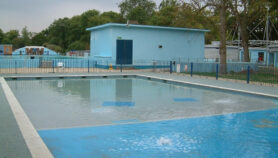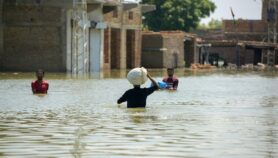By: Mohamed Alian
Send to a friend
The details you provide on this page will not be used to send unsolicited email, and will not be sold to a 3rd party. See privacy policy.
[MUSCAT] The Oman-based Middle East Desalination Research Center is preparing to conduct research for the first time since it was set up in late 1996.
Until now, the centre has only funded and managed research projects in the region, but from next year it will begin its own research programmes in laboratories currently under construction in the capital Muscat.
Its director Koussai Quteishat says that Lebanon and Syria are the only two countries in the Middle East with adequate water supplies according to the United Nations’ definition of levels ‘critical for development’.
He predicts that long before 2050, every country in the region will face dire water shortages that only desalination technology can avert.
Desalination involves purifying salty or brackish water by removing dissolved salts. Oman currently supplies 61 per cent of its annual residential water using this approach.
Quteishat says that the research centre’s main aim is to find ways to make desalination less expensive.
Though he believes that desalination is the top technological approach for increasing water supplies in the region, Quteishat emphasises the need for other measures, such as recycling water and reducing consumption.
He points out that Kuwait, Saudi Arabia and the United Arab Emirates, which provide water for free, use more per person than anywhere else in the world.
Since 1996, the Middle East Desalination Research Center has funded 55 research projects involving researchers from 34 countries. It also provides scholarships for regional students taking higher degrees in desalination science, and conducts workshops in the Middle East and North Africa.
Mohamed Alian is science editor at Radio Oman












